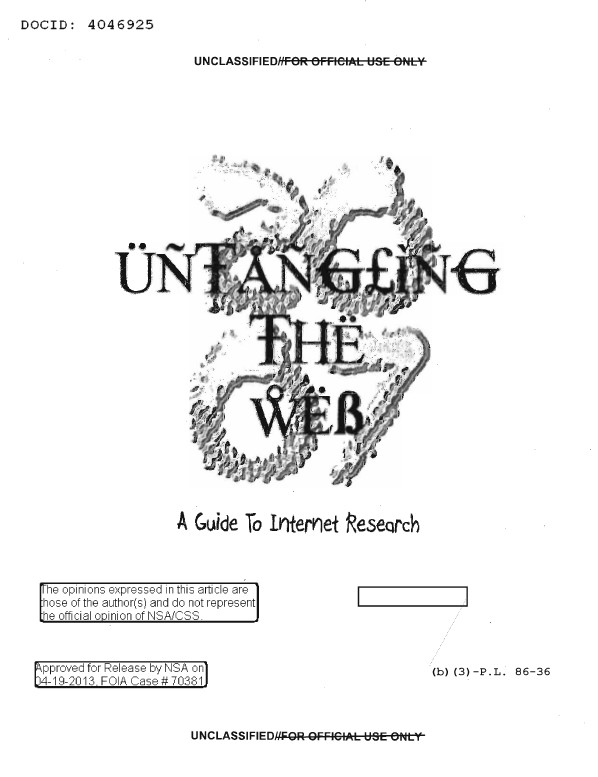Wendy Hui Kyong Chun: Control And Freedom: Power And Paranoia in the Age of Fiber Optics (2006)
Filed under book | Tags: · freedom, internet, pornography

“How has the Internet, a medium that thrives on control, been accepted as a medium of freedom? Why is freedom increasingly indistinguishable from paranoid control? In Control and Freedom, Wendy Hui Kyong Chun explores the current political and technological coupling of freedom with control by tracing the emergence of the Internet as a mass medium. The parallel (and paranoid) myths of the Internet as total freedom/total control, she says, stem from our reduction of political problems into technological ones.
Drawing on the theories of Gilles Deleuze and Michel Foucault and analyzing such phenomena as Webcams and face-recognition technology, Chun argues that the relationship between control and freedom in networked contact is experienced and negotiated through sexuality and race. She traces the desire for cyberspace to cyberpunk fiction and maps the transformation of public/private into open/closed. Analyzing “pornocracy,” she contends that it was through cyberporn and the government’s attempts to regulate it that the Internet became a marketplace of ideas and commodities. Chun describes the way Internet promoters conflated technological empowerment with racial empowerment and, through close examinations of William Gibson’s Neuromancer and Mamoru Oshii’s Ghost in the Shell, she analyzes the management of interactivity in narratives of cyberspace.
The Internet’s potential for democracy stems not from illusory promises of individual empowerment, Chun argues, but rather from the ways in which it exposes us to others (and to other machines) in ways we cannot control. Using fiber optic networks—light coursing through glass tubes—as metaphor and reality, Control and Freedom engages the rich philosophical tradition of light as a figure for knowledge, clarification, surveillance, and discipline, in order to argue that fiber-optic networks physically instantiate, and thus shatter, enlightenment.”
Publisher MIT Press, 2006
ISBN 0262033321, 9780262033329
352 pages
PDF (updated on 2019-10-10)
Comment (0)Finn Brunton: Spam: Shadow History of the Internet (2013)
Filed under book | Tags: · arpanet, botnet, captcha, history of technology, internet, malware, spam, technology, usenet

The vast majority of all email sent every day is spam, a variety of idiosyncratically spelled requests to provide account information, invitations to spend money on dubious products, and pleas to send cash overseas. Most of it is caught by filters before ever reaching an in-box. Where does it come from? As Finn Brunton explains in Spam, it is produced and shaped by many different populations around the world: programmers, con artists, bots and their botmasters, pharmaceutical merchants, marketers, identity thieves, crooked bankers and their victims, cops, lawyers, network security professionals, vigilantes, and hackers. Every time we go online, we participate in the system of spam, with choices, refusals, and purchases the consequences of which we may not understand.
This is a book about what spam is, how it works, and what it means. Brunton provides a cultural history that stretches from pranks on early computer networks to the construction of a global criminal infrastructure. The history of spam, Brunton shows us, is a shadow history of the Internet itself, with spam emerging as the mirror image of the online communities it targets. Brunton traces spam through three epochs: the 1970s to 1995, and the early, noncommercial computer networks that became the Internet; 1995 to 2003, with the dot-com boom, the rise of spam’s entrepreneurs, and the first efforts at regulating spam; and 2003 to the present, with the war of algorithms—spam versus anti-spam. Spam shows us how technologies, from email to search engines, are transformed by unintended consequences and adaptations, and how online communities develop and invent governance for themselves.
Publisher MIT Press, 2013
Infrastructures Series
ISBN 026201887X, 9780262018876
270 pages
review (Evgeny Morozov, The Wall Street Journal)
interview with author (NPR)
Download (removed on 2013-5-20 upon request of the publisher)
Comment (0)National Security Agency: Untangling the Web: A Guide to Internet Research (2007)
Filed under manual | Tags: · google, hacking, internet, research, search, security, technology, web

“The manual just released by the NSA following a FOIA request filed in April by MuckRock. The book is filled with advice for using search engines, the Internet Archive and other online tools.” (source)
Publisher Center for Digital Content of the National Security Agency, February 2007
Unclassified in May 2013
643 pages
via Marcell Mars, via Wired
PDF (from NSA.gov)
PDF (mirror at the MuckRock website)
View online

